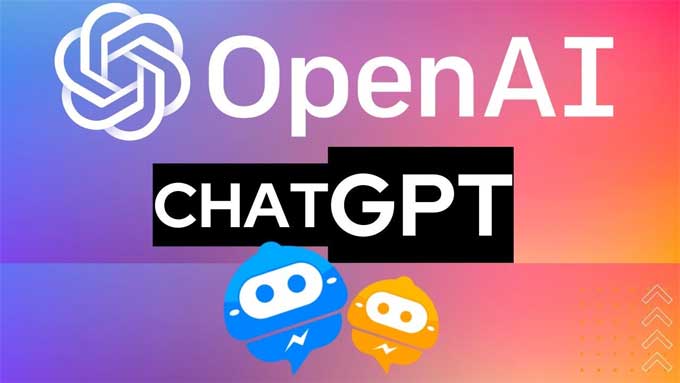
Implementing ChatGPT and OpenAI for Enhanced Construction Project Management

In recent years, the construction industry has witnessed remarkable advancements in technology, enabling professionals to streamline project management and improve overall efficiency. One such breakthrough is the integration of conversational AI systems like ChatGPT, powered by OpenAI.
This powerful combination offers numerous benefits to construction projects, including enhanced communication, real-time problem-solving, and efficient decision-making. In this article, we will explore how implementing ChatGPT and OpenAI can revolutionize construction project management.
What are the Uses Of ChatGPT and OpenAI in Construction?
OpenAI-powered ChatGPT offers a wide array of construction industry uses and applications. Here are some of the ways ChatGPT and OpenAI can be used in construction:
Real-time Communication and Collaboration:
Facilitating instant and seamless communication among project stakeholders, regardless of their physical locations. Enabling real-time collaboration and information exchange, improving project coordination and decision-making.
Intelligent Project Planning and Scheduling:
Generating accurate project schedules based on historical data, constraints, and dependencies. Optimizing resource allocation and identifying potential bottlenecks to ensure timely project completion.
On-site Issue Resolution:
Providing on-site workers with a virtual assistant for immediate problem-solving support. Analyzing issues and offering recommendations based on past experiences and knowledge databases, minimizing project disruptions.
Knowledge Sharing and Training:
Serving as a centralized repository for project-related documents, guidelines, and best practices, ensuring easy access and knowledge sharing among team members. Assisting in onboarding and training processes, helping new team members understand construction processes and techniques efficiently.
Data Analysis and Predictive Insights:
Analyzing project data to extract valuable insights, and identify patterns, and trends.Providing predictive insights for risk assessment and mitigation, enhancing decision-making processes based on data-driven recommendations.
Virtual Assistant for Clients and Stakeholders:
Assisting clients and stakeholders by providing real-time updates, answering queries, and addressing concerns promptly. Enhancing client satisfaction and transparency throughout the construction project.
Quality Control and Safety Monitoring:
Analyzing project data and sensor inputs to monitor quality control parameters and identify potential safety hazards. Assisting in ensuring compliance with safety regulations and standards.
Cost Estimation and Budget Management:
Analyzing historical project data and providing insights for accurate cost estimation. Assisting in budget management and cost optimization throughout the construction project.
Documentation and Reporting:
Assisting in generating project reports, progress updates, and documentation.Streamlining the documentation process and ensuring accurate record-keeping.
Continuous Learning and Improvement:
Learning from project data and user interactions to improve future recommendations and decision-making.Enabling continuous improvement in construction practices and processes.
ChatGPT and OpenAI provide construction professionals with a tool that improves communication, facilitates efficient problem-solving, and optimizes project outcomes. AI-powered tools are versatile and adaptable, making them valuable assets for the construction industry, driving innovation and efficiency.
How ChatGPT and OpenAi can become a con for the construction industry?
While ChatGPT and OpenAI offer numerous benefits, there are also potential demerits or challenges associated with their use in the field of construction. It's important to consider these factors to make informed decisions about implementing AI technologies. Here are some possible demerits:
Lack of Industry-specific Expertise:
ChatGPT relies on the data it has been trained on, which may not always capture the domain-specific knowledge and nuances of the construction industry. As a result, it may not fully understand or provide accurate responses to complex construction-related queries.
Limited Contextual Understanding:
ChatGPT's ability to comprehend context is limited. It may struggle to understand ambiguous or context-dependent questions, leading to inaccurate or irrelevant responses. This can be a challenge when dealing with intricate construction-specific requirements or scenarios.
Dependency on Data Quality:
The accuracy and reliability of ChatGPT heavily depend on the quality and relevance of the data used for training. If the training data contains biases, errors, or inadequate representation of construction-related knowledge, it may impact the effectiveness and reliability of the system's responses.
Difficulty Handling Unforeseen Situations:
While ChatGPT can handle routine queries and scenarios effectively, it may struggle to handle novel or unforeseen situations. Construction projects often involve unique challenges and complexities, and the AI system may not have encountered similar scenarios during training, leading to limited usefulness in such cases.
To learn more, watch the following video tutorial.
Video Source: freeCodeCamp.org
Security and Privacy Concerns:
Implementing ChatGPT and OpenAI involves handling sensitive project data and information. Maintaining data privacy, ensuring secure data transmission, and protecting against potential breaches or misuse of information becomes crucial and may require additional security measures.
Integration Challenges:
Integrating ChatGPT and OpenAI into existing construction project management systems may require technical expertise and resources. Compatibility issues, data integration, and system interoperability can pose challenges during implementation, potentially causing delays or disruptions.
Overreliance on AI:
While ChatGPT can provide valuable support, there is a risk of overreliance on AI systems. It's important to strike a balance between leveraging AI capabilities and maintaining human expertise and judgment. Overdependence on AI systems may undermine critical thinking, creativity, and human decision-making, which are essential in the construction industry.
Ethical Considerations:
The use of AI raises ethical concerns, including biases in data and algorithms, potential job displacement, and the impact on the workforce. It is crucial to ensure fairness, transparency, and responsible use of AI technologies to mitigate these ethical challenges.
These potential demerits can be addressed by evaluating ChatGPT and OpenAI carefully, establishing clear use cases, providing appropriate training data, and supplementing AI technologies with human expertise and judgment. The construction industry can mitigate these challenges by taking a thoughtful and cautious approach to AI.


